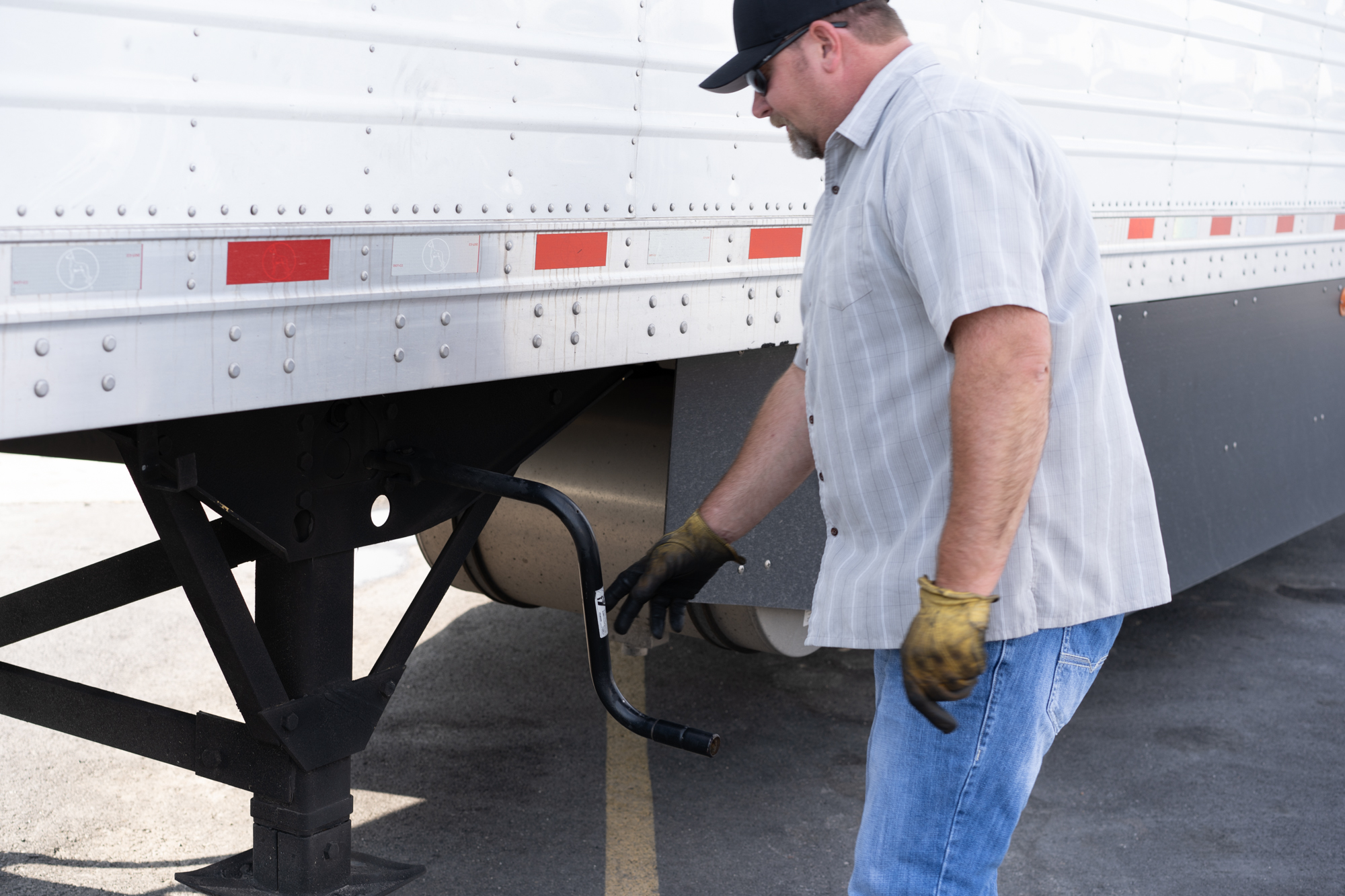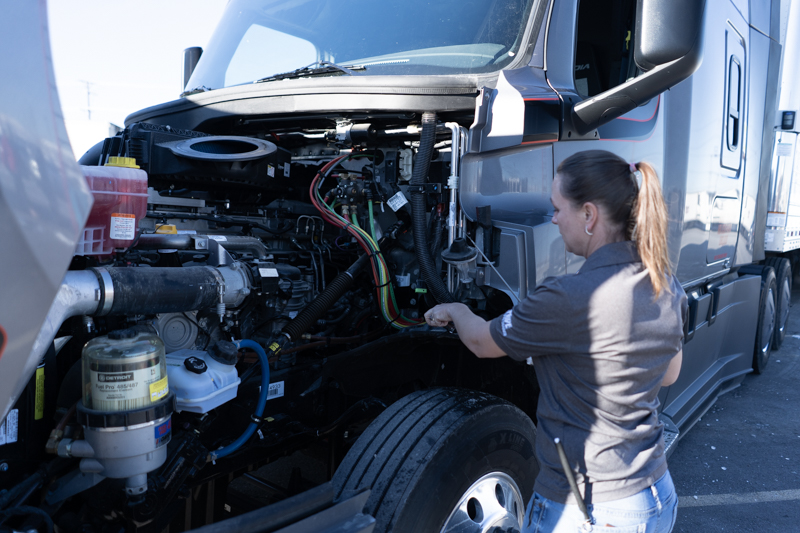by Pride Transport | May 08, 2024
When you’re preparing to complete a route in your commercial vehicle, there are important safety considerations to keep in mind. From pre-trip inspections to remembering safety rules and guidelines, it’s up to you to be as safe as you can be on the road.
Failing to play it safe can lead to serious consequences. For example, there were approximately 168,320 trucking accidents in the United States in 2022, and 4,766 were fatal. Many of these crashes could have been avoided if drivers had done their due diligence and kept safety as their number one priority.
When you get into a crash or break the law, you’ll face a trucking violation. Trucking violations are problematic because they paint you and your employer in a bad light. Additionally, they can lead to harsh penalties — some as severe as losing your license or facing prosecution.
To help you avoid making these serious mistakes, here are the top 10 trucking violations to watch out for and why you should take them seriously.

Watch Out for These Common Driving Violations
There are many different violations drivers can commit. Any of these can lead to fines or other penalties.
1. Speeding
The most common issue drivers of all kinds run into is speeding. Failing to watch your speedometer while driving can lead to speed errors. You can also violate speeding laws if you don’t know the speed limit and exceed it.
You are not allowed to speed, even if you need to meet a specific deadline. If you’re running behind, call dispatch or the recipient of the load, so they know what to expect.
2. Operating a Vehicle Without Proper Endorsements or Licensing
Depending on the vehicle you’re driving, you’ll need specific licensing and endorsement(s). A commercial driver’s license (CDL) is necessary to drive your commercial vehicle. You may need additional endorsements that will vary based on the contents of your loads.
Common violations of these rules include driving with the wrong license, driving without the right endorsement, and driving on a suspended license. If you have questions about licensing or endorsements, reach out to your employer or a mentor.
3. Failing To Conduct a Proper Pre-Trip Inspection
Before you get on the road, it’s important that you perform a pre-trip inspection. A pre-trip inspection is designed to identify problems with your vehicle before you’re on the road. And, although it can be frustrating to find problems with your vehicle, finding them early on is a key to preventing accidents caused by faulty or failing parts.
4. Keeping Poor Records
To drive a commercial vehicle, you need to maintain accurate records about your breaks, work hours, number of dispatches, and more. The records, called a “Driver’s Record of Duty Status”, or “RODS”, must be kept for each 24-hour period you work. The Federal Motor Carrier Safety Administration may request these logs, and you need to produce them on demand.
If you don’t keep a proper log of your activities, you could end up facing penalties including, but not limited to, prosecution.
5. Failing To Obey a Traffic Control Device
Whether you come to a stop light, approach a stop sign, or need to yield in the space ahead, failing to follow a traffic control device is a surefire way to end up in a serious collision. And, since your vehicle is likely to be much bigger than the vehicles of those around you, the collision could be severe. Always pay attention to where you’re going, and obey all traffic control devices.
6. Following Too Closely
Following other vehicles too closely is a big problem when you’re driving a big rig. When you follow too closely, you don’t give yourself enough time to slow down if the vehicle in front of you stops suddenly. It’s a bad habit, and it’s one that’s likely to cause a rear-end collision.
7. Improper Lane Changes
When you want to change lanes, you need to ensure there are no vehicles in your blind spots. You also need to turn on your turn signals and give the people around you time to notice that you’re going to be changing lanes or merging into their lanes. Since your truck is large, a lane change can be risky — take your time, and double-check your surroundings.
8. Improper Railroad Grade Crossings
When you approach a railroad crossing, you are required to follow specific rules. You must stop at all railroad crossings before you may cross. Additionally, you must stop within 50 feet (but no closer than 15) for the stop to count under this regulation. You may then cross the tracks, but you can’t shift gears while you do so.
9. Exceeding Your Hours of Service
Hours of Service violations are serious and can lead to harsh penalties. Under the Federal Motor Carrier Safety Administration (FMCSA), you must adhere to the schedule of hours you’re allowed to work at one time. If you work too much or don’t take a break when you’re meant to, you can end up in hot water. You can use this FMCSA educational tool to enter an example log and look for potential violations.
10. Violating Rules During a DOT Inspection
During DOT inspection, you need to meet specific safety requirements such as completing pre- and post-trip inspections. You will also need to agree to roadside inspections if asked to do so, such as if you pull into a weigh station.
If you have an unsatisfactory DOT inspection or audit, your company could face fines or other kinds of penalties. So, take DOT truck violations seriously and prepare for unexpected audits at any time.

Why Do These Violations Matter?
These truck violations matter for several reasons. First, violating these rules can put you or others at risk of a serious collision. Secondly, if you violate the rules, you or your employer could be fined. In some cases, you could have your license suspended or revoked. Finally, violating these rules is a sign that you don’t have the training or experience needed to be behind the wheel — and that fact increases the likelihood of getting into harm’s way.
If you commit certain violations, you may receive points on your license or have your license restricted, suspended, or revoked. For all of these reasons, it’s important to know the laws and regulations that apply to you and to adhere to them at all times.
Drive With Pride
At Pride, safety is our top priority. We want you (and all the people around you on the roads!) to stay safe while you’re en route. Our company combines technology, experience, and knowledge to create a safe working environment for all our team members. To learn more about driving with Pride, visit us online.